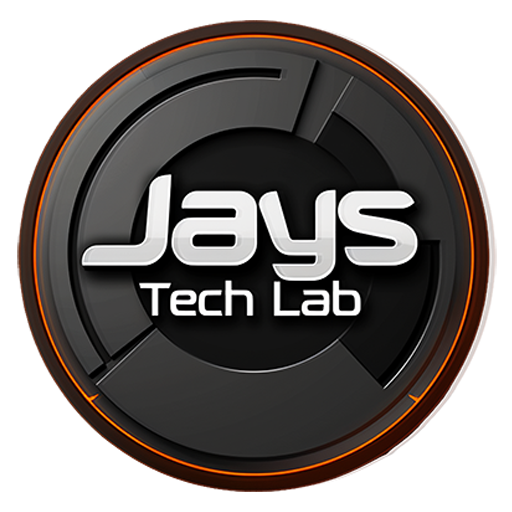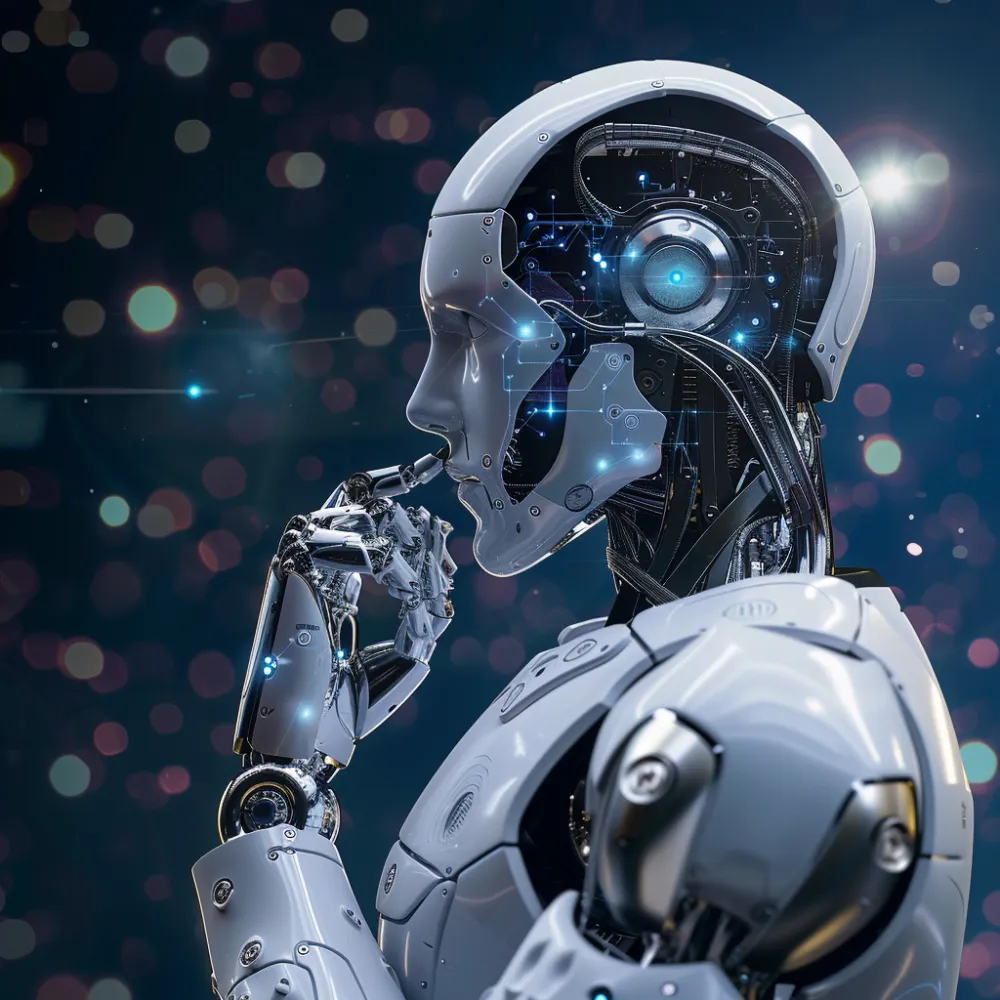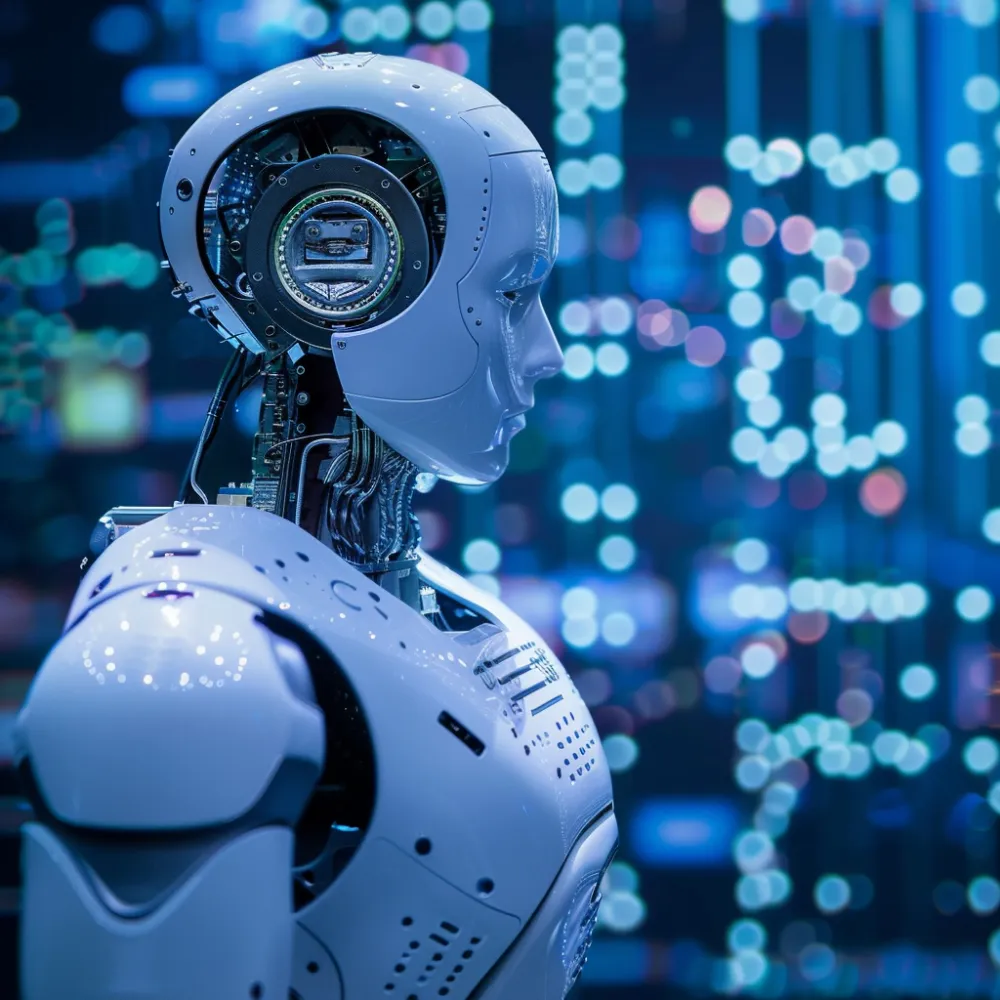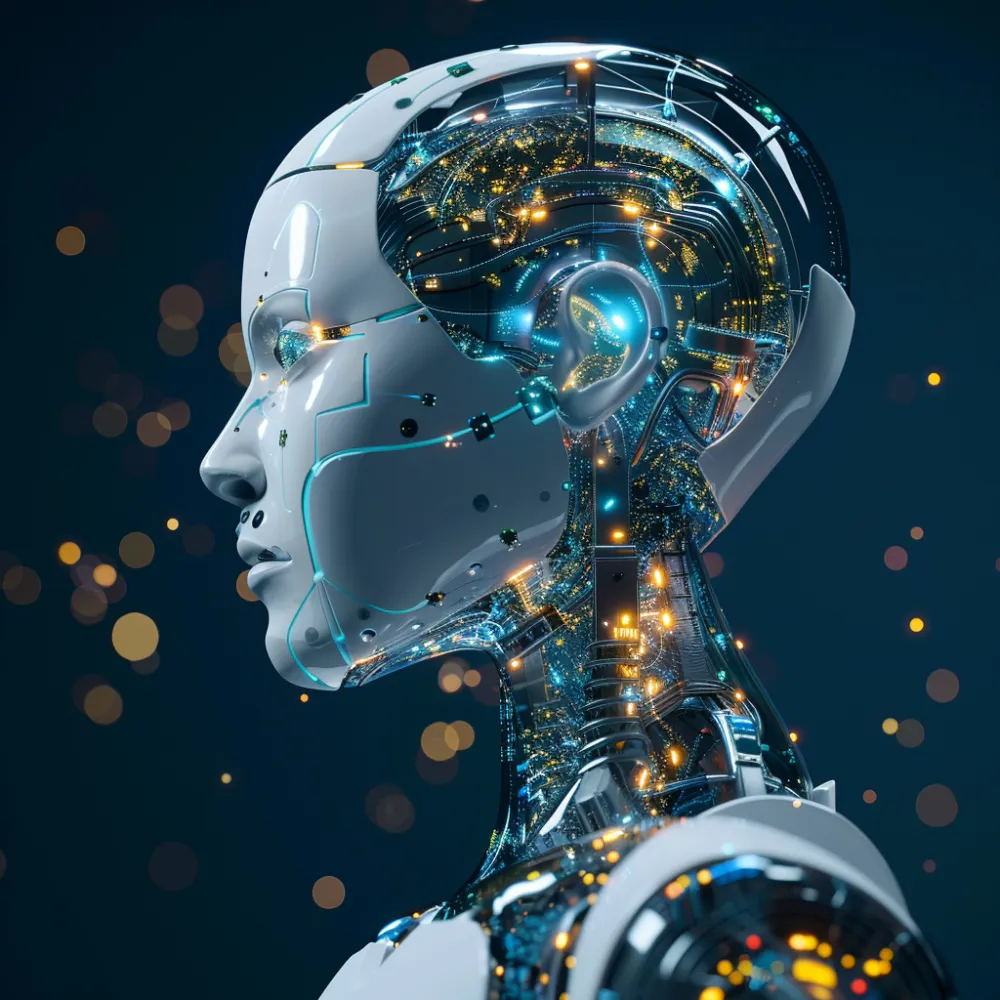Table of Contents
🌐 Ethics and AI
🤖 Ethical Considerations
AI raises several ethical concerns, including job displacement, decision-making transparency, and accountability. As AI systems become more integrated into society, ensuring they operate fairly and without bias is crucial.
🧠 Bias in AI
AI systems can inherit biases present in their training data, leading to unfair or discriminatory outcomes. Addressing bias in AI involves careful data selection, algorithm design, and continuous monitoring to ensure equitable performance.
🔒 Privacy Issues
The use of AI often involves large-scale data collection, raising privacy concerns. Protecting personal data and ensuring informed consent are critical in maintaining user trust and complying with regulations.
🌟 Future of AI
📈 AI Trends
Current AI trends include advancements in natural language understanding, reinforcement learning, and AI ethics. Research is focused on creating more robust and generalizable AI systems.
💼 AI and Job Market
AI is expected to significantly impact the job market, creating new opportunities while displacing some existing roles. Reskilling and upskilling the workforce are essential to adapt to these changes.
🚀 AI Innovations
Innovations in AI include developments in autonomous systems, personalized medicine, and AI-driven scientific research. These advancements promise to transform various industries and improve quality of life.
🛡️ AI and Computer Security
🔐 Cybersecurity Basics
Cyber Security involves protecting computer systems and networks from theft, damage, and unauthorized access. Key practices include using strong passwords, updating software, and employing firewalls.
🛠️ AI in Cybersecurity
AI enhances cybersecurity by automating threat detection, analyzing large datasets for anomalies, and responding to incidents in real-time. AI-powered tools can identify and mitigate threats faster and more accurately than traditional methods.
📚 Learning Resources for AI and Computers
💻 Online Courses
Numerous online platforms offer AI and computer science courses, including Coursera, edX, and Udacity. These courses cover a range of topics, from basic concepts to advanced techniques.

📖 Books
Books like "Artificial Intelligence: A Modern Approach" by Stuart Russell and Peter Norvig and "Deep Learning" by Ian Goodfellow, Yoshua Bengio, and Aaron Courville provide comprehensive knowledge on AI.

🌐 Communities
Joining AI and computer science communities, such as online forums, local meetups, and professional organizations, can provide valuable networking opportunities and support.
💡 Hands-On Projects
🧑💻 Beginner Projects
For beginners, projects like creating a simple chatbot, building a basic recommendation system, or developing a game with AI can be a good start. These projects help understand the fundamental concepts and tools in AI.
🚧 Intermediate Projects
Intermediate projects might include developing a sentiment analysis tool, creating a computer vision application, or building an AI-powered personal assistant. These projects require a deeper understanding of AI algorithms and programming.
🏗️ Advanced Projects
Advanced projects involve complex tasks such as developing autonomous vehicles, creating advanced natural language processing systems, or conducting AI research. These projects often require extensive knowledge and experience in AI and computer science.
💼 Careers in AI and Computer Science
👨💼 Job Roles
Careers in AI and computer science include roles such as data scientist, machine learning engineer, AI researcher, software developer, and cybersecurity analyst. Each role requires specific skills and knowledge.
🔑 Required Skills
Essential skills for a career in AI and computer science include programming, statistical analysis, data visualization, and knowledge of AI algorithms and tools. Continuous learning and staying updated with the latest developments are crucial.
📊 Job Market Trends
The demand for AI and computer science professionals is growing rapidly. Job opportunities are expanding across various sectors, including technology, healthcare, finance, and manufacturing.
🏠 AI in Everyday Life
🗣️ AI Assistants
AI assistants like Siri, Alexa, and Google Assistant use natural language processing and machine learning to interact with users, answer questions, and perform tasks.
🏡 Smart Homes
Smart homes utilize AI to automate and control household devices, improving convenience, security, and energy efficiency. AI-powered systems can learn user preferences and adjust settings accordingly.
🚗 Autonomous Vehicles
Autonomous vehicles use AI to navigate and operate without human intervention. These vehicles rely on sensors, machine learning algorithms, and real-time data processing to make driving decisions.






